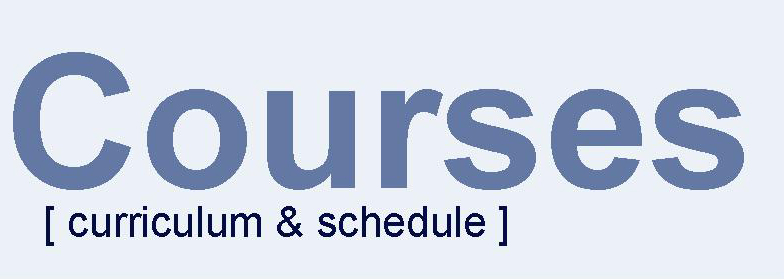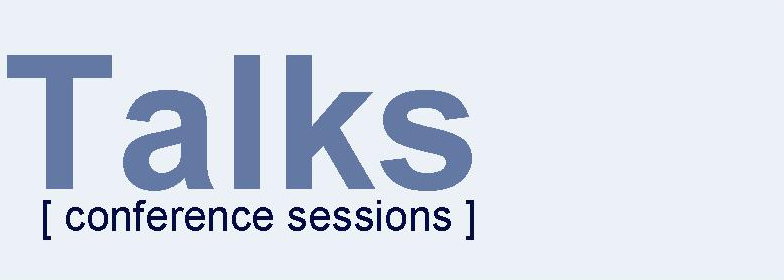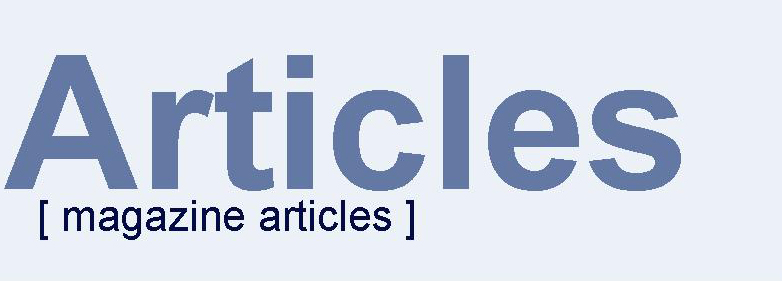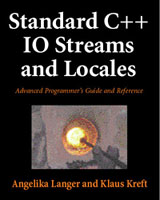Amazon.com Review: Standard C++ IOStreams and Locales

(found at
www.amazon.com
)
 Amazing book
Amazing book |
|
Reviewer:
Ray from United States,
May 20, 2002
|
The title of the book says it all. This book
delivers anything you could possibly want to know about streams and locales.
The book might seem dry at times but im so glad I muddled through this
book the first time; i cant imagine programming with out it!
You will be able to write flawless file I/O thats easily extensible
and maintainable. All with less code than the C-style I/O. Almost all C++
books teach C style I/O for some reason, and you will cringe at that after
you absorb this book.
You will be able use your new code with the STL seamlessly giving you
even more robust and easy to maintain code. I still get giddy when i see
how elegant and flawless your code can be when you use the standard library
(the non-depracted part) to the fullest.
The auther points out that some example code may not work on MSVC++
6.0. Well, thats what i use and found little code i cant compile without
modifications; and the code you cant compile you will be able to figure
out good workaround right away if you know what VC 6.0 cant do; even I
found good workarounds.
You may think Iostreams and locales arent worth knowing about if you
program windows apps. This is wrong.
This book is good in so many ways, even the appendiecs were great source
of new info. I still reach for this book at least once a week. This is
my best buy period. |
 The
best, and only, comprehensive IOStreams book
The
best, and only, comprehensive IOStreams book
|
|
Reviewer:
Dave
O'Hearn
from Boston, MA United States
,
March 14, 2002
|
When people think of C++ standard libraries,
they think of the STL. There are dozens of books on the STL, and everyone
is taking advantages of its features to get good algorithms that don't
reinvent
the wheel.
As this book points out, IOStreams is perhaps the most-overlooked part
of standard C++. It has just as many features as the STL, and can help
you write less, better code if you take advantage of it. If
you have ever spent a few days writing a buffer class, you didn't have
to; The IOStreams streambuf is comletely extensible and customizable.
Even better, IOStreams is a complex, high-performance library written
by a C++ expert from Bell Labs. Most of us C++ programmers don't think
about how IOStreams works, other than to write
'<<' a few times. OO design doesn't get any better than that.
This book is also an excellent case study on the IOStreams library, touching
on the proper use of multiple inheritence, and the
benefits of static type checking. If a library can be this efficient
and extensible, while being as easy to use as typing '<<', there
is something every C++ programmer can learn from its design.
The book is even endorsed by Jerry Schwarz, the man who invented IOStreams,
and has a forward written by him. If you own two STL books, but not this
book, I think you've made a mistake. This
should be the third C++ book you buy, after a language reference and
STL reference. It is that useful and interesting. |
 Hidden
Treasures
Hidden
Treasures
|
|
Reviewer:
Klaus
Wittlich
from Cologne, Germany, February 2, 2001
|
The reason why I bought this book was the
wish to learn more about the C++ Standard. When I held the book in my hand
the first time I was not shure if it would be worth the time reading it.
It seemed only be useful for a DOS - like software, not for my GUI problems.
So I was very surprised in a good sense to read about ideas how to
use IOStreams for GUI -
internationalization (I18N), described on pages 175 and 225. The IOStreams
library, as it is described by the authors, is a better answer to my I18N
- problems than all other three GUI - libraries I know. It offers more
flexibility.
An other treasure was the techniqe of two-phase polymorphic dispatch
described in this excellent book. This technique allows me a much more
flexible design than in the past. If the customer asked for new features
I often had to change my class hierarchy (and all classes in it) by adding
new virtual functions. It is cumbersome if it is code of a library. The
two-phase polymorphic dispatch shows an alternative.
The third (but not the last) treasure are the appendices. They are
a good reference for C++ refinements.
The thought I perhaps would not have read this book worries me, I had
missed a chance.
Many thanks to the authors writing such an excellent book. |
 Unbelievable!
Unbelievable!
|
|
Reviewer:
maunikar
from Independence, OH United States, January 29, 2001
|
|
I've never seen a more thorough book. It's
amazing just how much information there is on one topic. If you really
want to use the iostream library, you have to have this book. |
 Every
serious streams programmer needs this book
Every
serious streams programmer needs this book
|
|
Reviewer:
Stephen
Cleary
from Petoskey, MI USA, January 2, 2001
|
This book is *the* reference for IOstreams. It is for advanced programmers
who need to extend the
IOstreams framework.
This book is not a tutorial or an introduction. It is not recommended
for people to learn how to *use* IOstreams.
It *is* a complete technical reference, covering every detail of how
IOstreams work. I've had to use it a few times in my work, and each time
I was able to find the information I needed very quickly (this is good,
considering I've never read it through).
I have not yet had to use the information on locales, but I expect
it to be equally complete and well-organized.
A *must* for any serious C++ programmer! |
 Explains
streams in (sometimes) excruciating detail
Explains
streams in (sometimes) excruciating detail
|
|
Reviewer:
John Wismar
from
Sacramento, CA USA, January 2, 2001
|
As the authors point out, the STL comprises about a third of
the standard library, and the streams and locales portion another third,
yet whereas there are dozens of books available describing STL, this is
the only up-to-date treatment of streams and locales that I have come across.
Fortunately, it's very well-written, by knowledgeable authors. The
text is fairly dense reading, but it flows logically, and the information
has not been put together this well anywhere else that I have seen.
Chances are, if you are a C++ programmer, you use the streams library
fairly regularly. You may not, however, be familiar with the details of
the streams design. Similarly, my experience has been that I may have touched
upon locales occasionally, but did not have a detailed grasp of the breadth
of the design.
Because of this, and because these may not be everyday issues, it is
very valuable to have a detailed reference book to refer to when you need
it. This book fits the bill very nicely. |
 More
Than Streams
More
Than Streams
|
|
Reviewer:
Mark
Wilson
from
Winchester, VA USA
October 10, 2000
|
First rate, well thought out and organized,
once you recognize that (as the authors suggest) you need to read the second
half of the book first.
Indispensible companion to works on the STL and standard C++ library.
I won't even lend my copy to my best friend. |
 It
may have warts, but it's the only option
It
may have warts, but it's the only option
|
|
Reviewer:
Mr
J A Dennett
from
Bournemouth, UK
June 20, 2000
|
|
This book is the only up-to-date guide to the minutae of the ANSI/ISO
C++ IOStreams framework, and it's hugely detailed. It's not easy to follow,
even by the standards of this field, and the code samples aren't the best,
but if you need to understand IOStreams you have no choice. |
 Add
This Essential Book To Your Library
Add
This Essential Book To Your Library
|
|
Reviewer:
Aaron Walters
from
Ontario, Canada May 23, 2000
|
In short: I would highly recommend that you add this book to your library
of computer books, both as an educational and reference tool.
It is Well-written: Easy to understand and follow concepts, many timely
examples are found all through the text.
It is Well-organized: Easy to navigate, information is organized into
'digestible chunks' to ease the learning and absorption process.
It is Concise, yet thorough: No information overload, though it still
presents (in a logical, easy-to-follow manner) a wealth of detailed information
for the iostream programmer.
It is Up-to-date: Published in January 2000.
I have found it an invaluable and essential tool in learning and using
the iostreams library,
arguably one of the most-used libraries in the C++ Standard. This book
will help you understand and use the iostream library to it's fullest potential,
the way it was meant to be
used.
Don't get trapped by design errors due to misunderstanding or not knowing
about features
of iostreams: Get this book.
I would also suggest The C++ Standard Library, by Nicolai M. Josuttis
for information on
all aspects of the STL. |
 Required
Ownership for C++ programmers
Required
Ownership for C++ programmers
|
|
Reviewer:
Gary
Powell
from Seattle, WA (USA) May 1, 2000
|
This book is it. There is no other text which covers the full I/O Streams
library as of the ISO C++99 standard. B. Stroustrup's book "The C++ Programming
language" has one chapter of 50+ pages on streams. Its enough to get you
started, but not enough if you want to make roll your own. Your other choice
is to comb back issues of C++ Report and C/C++ User's Journal for the relevent
information. (And know enough to ignore the articles that do it wrong.
Ok maybe wrong is too strong a word, but now that you have the option to
understand how the streams library is built you can use it the way it was
intended.)
There is now no reason ANY programmer should create a new ostream class
by inheriting from basic_ostream<>. The I/O streams library was designed
to be extended by programmers. Read this book and learn how to do it so
that you don't have to re-write every sub member as a forward to the actual
class.
As for Locales, there is a chapter in the latest version of B.S's book
as an Appendix. Or about 1/4th of this book is devoted to how that mechanism
works.
Buy it. You need it. Without it you are programming by guess and by
golly. |
 Indispensible
Guide to IOStreams
Indispensible
Guide to IOStreams
|
|
Reviewer:
Ben
Dorman
from Columbia, MD, USA March 18, 2000
|
This book is as indispensible to the serious C++ programmer as guides
to the Standard Containers (STL) parts of the C++ standard library, and
arrived in the bookstores in time to be the standard work on the subject
for years to come.
It is well written and lucid, and despite the authors claim to minimize
the number of actual examples, contains sufficient snippets of usable code
to be practically useful. |
 the
book of choice with regard to standard IOStream
the
book of choice with regard to standard IOStream
|
|
Reviewer:
Werner
Mossner
from Augsburg, Germany
March
12, 2000
|
This book is by far the most thorough and
profound book I have read so far which covers standard IOStreams. Especially,
I liked the comprehensive discussion of error handling which is often neglected
by other authors. The coverage of the topic is exhaustive. The iterator
concept and the other parts of the standard library are explained deeply
enough that the novice reader can get the glue.
The boxes "New Language Feature" are very helpful for the novice reader
and add a kind of luxury to the book.
The reference guide is very helpful in comparison to the standard.
It can be used as a basis for ones daily work. The layout is clearly arranged
and readable. |
 Best
book on iostreams
Best
book on iostreams
|
|
Reviewer:
A
reader
from Los Angeles, USA
March
11, 2000
|
Calling this book "good" is an under statement.
There is simply no other book that covers the iostream library to the level
of detail found here. This is just an awesome book.
The text has been a joy to read. Not exactly light reading but worth
it. This book serves well as a tutorial and reference guide to the iostream.
I haven't yet read the section on Locales but expect it to be of the same
caliber.
The last time a C++ book had such an impression was "The Annotated
C++ Reference Manual" of many years ago. This book ranks right up there.
Clearly, serious C++ developers will want to have this book in their
C++ reference collection. |
 Very
technical but worth the read and the wait
Very
technical but worth the read and the wait
|
|
Reviewer:
Douglas
Cassidy
from Cleveland
February
29, 2000
|
|
Two of my favorite C++ article authors have
put out a VERY useful book for someone who already has a good grasp of
C++ but now wants to have a mastery of IOStreams. |
 VERY
GOOD BOOK ABOUT STREAMBUFS !
VERY
GOOD BOOK ABOUT STREAMBUFS !
|
|
Reviewer:
Eichenberger
Remo
from Switzerland
February
29, 2000
|
|
(sorry for my english) this book explain the
streambuf's very good ! BUY IT ! |
 Sehr
gute Erklärung von STREAMBUF
Sehr
gute Erklärung von STREAMBUF
|
|
Reviewer:
reeichenberger@access.ch
aus Zürich, Schweiz , 29. Februar 2000
|
|
Ich war sehr überrascht über die
Qualität der Dokumentation von STREAMBUF-Ableitungen. Dieses Buch
erklärt alle wichtigen Zusammenhänge für die Entwicklung
von eigenen STREAMBUF's ! |
|
|




![]()